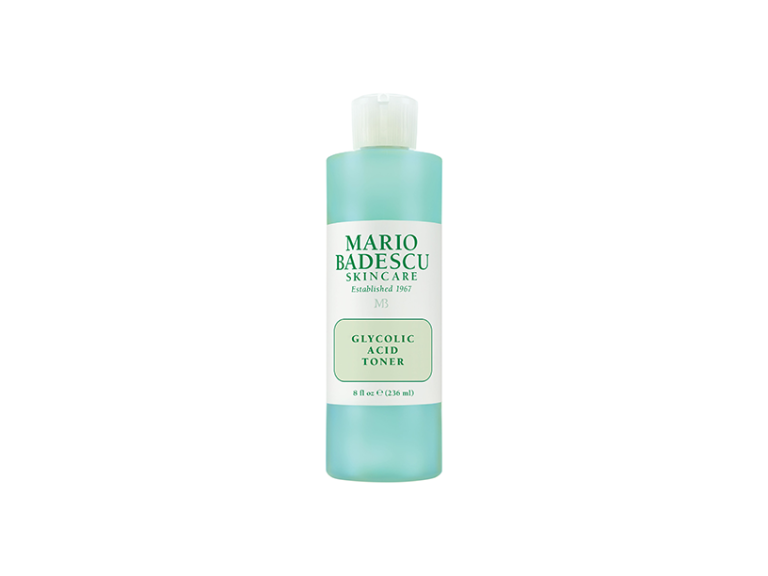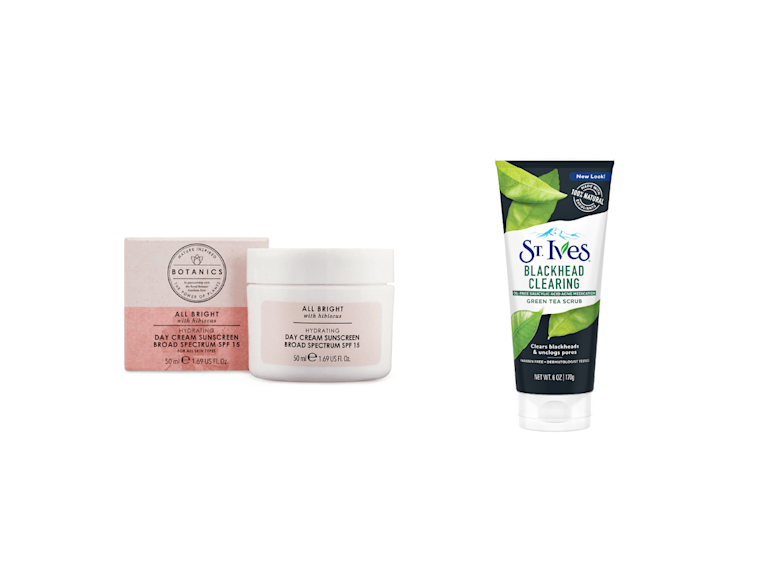How it works:
Share your skin goals and snap selfies
Your dermatology provider prescribes your formula
Apply nightly for happy, healthy skin
How it works:
How it works:
Share your skin goals and snap selfies
Your dermatology provider prescribes your formula
Apply nightly for happy, healthy skin
How it works:
Skincare routine detox: 6 products to stop using
How to simplify your routine and refresh your skin in the new year



Simplifying your skincare routine can actually be better for your skin than any concoction. First of all, it gives you more time for sleeping in, and getting a good night’s sleep is one of the best things you can do for your skin. Second of all, certain products might be doing your skin more harm than good — or nothing at all, just wasting your money and time.
Don’t just take our word for it. As Marie Kondo, the reigning queen of simplifying your life, famously says: you’ll be happier if you get rid of anything that doesn’t “spark joy.” Try applying the KonMari method to your closet and your bathroom shelf. On the skincare front, we’re here to help you kick off the new year right with some life-simplifying tips.
Products to wash your hands of
Let’s call these anti-product recommendations.
1. Toner? I hardly know her!
Newsflash! You don’t need toner. It’s basically a waste of money, and depending on what’s in it (i.e. alcohol), it could be doing your skin more harm than good anyway.
There is one exception: toners formulated with an AHA such as glycolic acid, can be useful for gentle chemical exfoliation. For example, Mario Badescu Glycolic Acid Toner, which is gentle enough for most skin types. Check out our blog post with more AHA and BHA product recommendations, and don’t miss our Guide to Chemical Exfoliation for the complete lowdown on AHAs (alpha hydroxy acids) and all things chemical exfoliation.

Mario Badescu Glycolic Acid Toner, $18 per 8oz bottle
2. Anything that contains sodium lauryl sulfate, isopropyl myristate, or laureth-4
Sodium lauryl sulfate has been linked to acne, as has isopropyl myristate and laureth-4. These ingredients are used in many common products — for example, Olay Regenerist Deep Hydration Regenerating Cream Face Moisturizer contains laureth-4, which is known to irritate skin and clog pores.
Here’s where it can get a little confusing. Sodium laureth sulfate (aka SLES) is a less pore-clogging modification of sodium lauryl sulfate. On the CosDNA scale, sodium laureth sulfate gets a 3 (as opposed to a 5 for sodium lauryl sulfate) for acne-causing potential. That means it might not be as problematic for some people’s skin, but we still recommend avoiding it.

File under “products to wash your hands of” if you’ve got acne-prone skin: these products all contain coconut oil in some form.
3. Watch out for coconut oil in disguise
Coconut oil and cocoa butter may smell good and be super-moisturizing, but they can clog pores and cause pimples in people with acne-prone skin. Sneaky coconut oil can show up in ingredients lists under various names. Look out for cocos nucifera oil, the common term for coconut oil in product ingredients lists.
You’ll have to be vigilant and read the ingredients of your moisturizers, cleansers, makeup, and other products, because it turns up in a lot of products in disguise. Lauric acid, which also comes from coconut oil, is another potentially pore-clogging ingredient to watch out for. It’s used in some bar soaps and body washes, such as Dove Beauty Bar and Glossier Body Hero Daily Oil Wash. However, there is a good side to lauric acid: it fights the P. acnes bacteria that is involved in acne, and also has been shown to decrease inflammation. So, it’s not an exact science — your skin may or may not do well with this ingredient. Feel free to try out a product with lauric acid in it, but if you break out after using it for a few weeks, you’ll probably have your answer!

Left: Botanics All Bright Day Cream SPF 15 (contains alcohol). Right: St. Ives Blackhead Clearing Face Scrub Green Tea (contains cetyl acetate).
4. Alcohol
We don’t mean the kind you drink, although a dry January or New Years detox can’t hurt (drinking to excess, especially sugary cocktails, can contribute to acne). We’re talking alcohol as an ingredient in products you put on your skin. Alcohol irritates skin, yet it’s found in plenty of products. For one example, Botanics All Bright Day Cream SPF 15 contains alcohol, as do some astringents and toners.
Alcohol isn’t always problematic, however! It depends where it is on the ingredients list, which is typically ordered from from most to least concentration. Alcohol can help active ingredients in creams and lotions penetrate into the skin more effectively, but too much of it will dry out the skin surface and make it vulnerable to damage. Basically, if alcohol is found near the top of the ingredients list, that product could irritate your skin. But if alcohol is listed near the bottom, there typically isn’t enough of it to worry about.
5. Cetyl acetate
Cetyl acetate can also possibly lead to clogged pores. This ingredient appears in plenty of skincare products, such as St. Ives Blackhead Clearing Face Scrub Green Tea. However, it’s not necessarily true that one potentially pore-clogging (comedogenic) ingredient means the end product will cause acne. Just take these pieces of advice as a helpful guideline about which ingredients to avoid when you’re simplifying your skincare routine!
6. “Natural” products
Natural doesn’t mean anything by FDA standards, meaning it’s unregulated, so just because a product is labeled as such doesn’t mean it’s any safer or made without “unnatural” ingredients. What constitutes “unnatural” ingredients, anyway? Many (if not most) ingredients in skincare products, makeup, etc. are man-made or altered by scientists at some stage, usually for good reasons (i.e. safety or longevity). It’s nothing to shy away from. Remember, you can always check out if any ingredient might irritate your skin or clog pores by using CosDNA.com. Check out our easy how-to guide!

Photo cred: @halliebing on Instagram
Remember to KISS: keep it simple, smartypants
The most simple-but-effective, best bang for your buck, one-and-done skincare solution? A monthly subscription to the Curology set: a box delivered to your door, packed with a simple cleanser, non-comedogenic moisturizer, and custom superbottle formulated to treat your unique skin with active ingredients you can only get with a prescription. Sign up for a free trial of Curology today — your skin will thank you. ❤


Curology Team